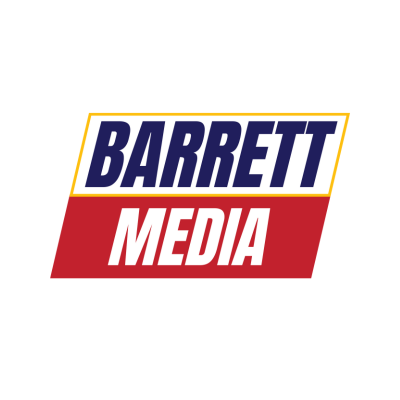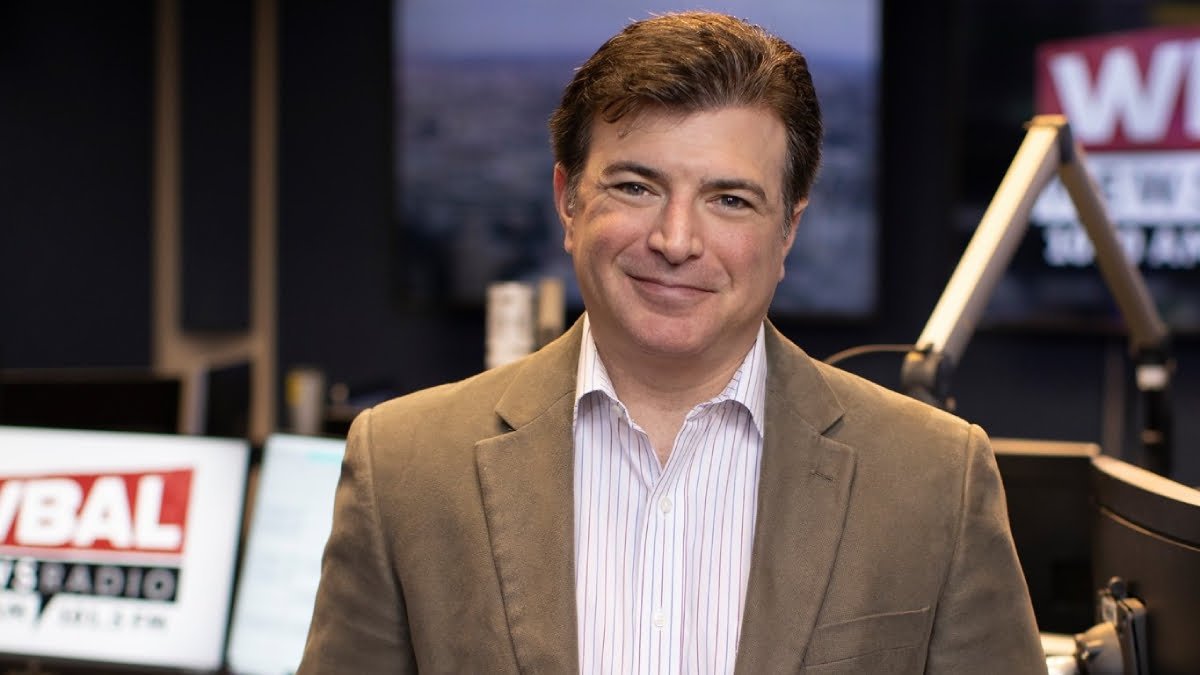WBAL Radio host Dan Joseph expresses his gratitude for the opportunities he has earned at the station. His perception of the news industry and opinion journalism has changed for the better after moving to Baltimore five years ago. Joseph enjoys his current work environment and acknowledges the hard work it took to get where he is now.
At one point, Dan Joseph worked as an actor in Southern California’s film and theatre industry. However, realizing his potential, he set a five-year goal for success. When it was evident that he wouldn’t be hired for a significant role, he learned from his life experience and moved on.
Dan Joseph had hosted nights at WBAL for several years. Former PD Scott Masteller, who hired him, was well-known for mentoring and coaching specific talents. Joseph was one of Masteller’s proteges, and he learned valuable lessons from him that helped him succeed. Initially, Joseph struggled with his tendency to write everything down, a habit he had picked up when he first started hosting his show.
However, he worked hard to overcome this challenge. By the time he was paired with his current co-host, Torrey Snow, he had become a vastly improved broadcaster. Hearst (WBAL Radio’s parent company) recognized his growth and promoted him and Snow to host Torrey and Dan. Despite having different personalities and unique abilities, they entertain and inform their audience.
During an interview with Barrett News, Dan Joseph discussed his path to WBAL, the moment he realized that acting wasn’t the right career for him, the challenges of working in a city that often makes negative headlines, the positive impact of the Baltimore Orioles’ success on the city, and the strong rapport that he and Torrey Snow have built on their show.
Ryan Hedrick: This is your fifth year at WBAL Radio. Prior to Baltimore, where were you working?
Dan Joseph: I was unemployed when I got to WBAL. I was originally an actor in Hollywood for about eight years. That didn’t work out very well. I went to journalism school in the early 2000s. I returned to Washington, D.C., wrote a book on politics, and got the book published.
After that, I wound up at CNS News and MRC (a division of the Media Research Center), a conservative-leaning media watchdog group. I was their man of the street reporter. I would do interviews with people who were visiting Washington or who lived in Washington, and I would ask them basic questions about civics. The videos were funny because a lot of the people couldn’t answer the basic questions.
We did this on college campuses, and they got pretty popular. They became fodder on Hannity, Bill O’Reilly, and Fox News. After the Trump years, I kind of left conservative politics, once the Trump years started and once he became president, and I wanted to figure out what else I wanted to do.
I was very interested in radio then, so I texted my friend Bryan Nehman (co-host C4 and Bryan Nehman) and asked him if anything was available at WBAL. He said there wasn’t but that he would let me know if something became available.
RH: When did you realize that your acting career wasn’t going to work out?
DJ: It took about five years. That was the amount of time that I gave myself. When you go out to Hollywood to be an actor, it’s like a woodchipper. Some people succeed at it, but it’s very difficult. It requires great luck and unique circumstances, and it just wasn’t for me. I realized that if I kept acting, I was going to have trouble with money for most of my life, even if I was a working actor or someone who got commercials or small parts in television shows.
Having always enjoyed the news industry and political commentary, I went back to journalism school at Cal State Northridge and went from there. I really liked California and I miss it. I miss the culture there, and I miss the weather. These days, it seems like LA and San Francisco, and some of the places I loved, have fallen on hard times.
There were times when I felt things were looking up, but overall, I did mostly theatre. I wasn’t really that successful in terms of getting a lot of film or television auditions. I did a lot of live theatre, and there’s not that much money in live theatre in Los Angeles. You have to go to New York to do that. It just wasn’t right for me at the right time, but I was in my early 20s, so it was early enough that I could make that switch in my career without struggling.
RH: What was the biggest challenge for you transitioning from live acting to hosting a radio show?
Dan Joseph: The biggest thing I had to learn was that you don’t get to use a script. Originally, I was writing a lot of stuff down. I was making copious notes for each show and sometimes writing full-out monologues for shows. I was afraid that I wasn’t going to know what to say and that there would be dead air. It took me a couple of years before I was able to do a show without a lot of notes and just do it off the top of my head.
This is the most important thing that I’ve learned how to do since I got here. I couldn’t have done it without Scott Masteller. He taught me everything that he knows about this business.
RH: Jeff Wade has taken over as WBAL’s Program Director. How has the station changed?
DJ: It’s slightly different because Jeff is more of a hard news guy than a talk radio host. Jeff has been doing a great job of making that transition. He talks to us every day, we get his input, he gives us ideas for stories, and I think he’s doing a great job so far.
RH: Much of WBAL’s programming seems to focus on covering political corruption and violence in Baltimore. Can you explain how the station approaches news coverage?
Dan Joseph: As a talk/opinion host, it’s slightly different. In terms of hard news, we have one of the best newsrooms in the country. We get a lot of information about the stories we talk about from the WBAL Radio and TV newsrooms.
(City violence) is always a topic of conversation on almost every show we do because it’s so ubiquitous. We now have a problem with juveniles running wild in the city. There are car thefts all the time. It is our number one topic of conversation. Of course, we hit other things like the education system in Baltimore City, which is particularly bad.
You’re talking about lives. You’re talking about people dying in the streets, and even though we don’t know any of them personally, it hurts once you adopt the city as your own. It hurts when you have this kind of issue. When other people from around the country, you know, ask, ‘What’s going on in Baltimore City?’
I think the city has a lot of potential, but they have to control things first. I wish there were more conservative voices like Torrey Snow, myself, Brian Nehman, and C4 to change the attitude of some of the lawmakers here and not to change them ideologically, but to provide some new ideas because they’ve been going with the same ideas for the last 60 years in Baltimore City and it simply hasn’t worked.
RH: Can you tell me about your on-air dialogue with Torrey Snow, your co-host?
DJ: We agree about 60 percent of the time, maybe even about 70 percent. We have vehement disagreements about things, and that’s when the show is at its best when we have an actual debate about things. We’re getting a lot better at not talking over each other, which has to do with timing and getting to know your co-host and their cadence.
Torrey and I come from different backgrounds. He comes from a religious family, a military family, in rural Idaho. I come from the Washington D.C. area, from a more secular point of view.
We’re both conservatives, but we are different kinds of conservatives. I’m more of the Reagan-style conservative (fiscal responsibility, low taxes, strong military), and Torrey is more of the populist conservative that you’re seeing rising in the Republican party right now. So, there are real differences there, but that’s what makes the show good.
RH: WBAL is the flagship station for the Orioles; what impact has the team had on the station and the city?
Dan Joseph: I can’t really talk about the ratings, but I can tell you that the Baltimore Orioles have breathed life into the city like I haven’t seen since I got here. The Orioles were terrible. I mean, they’ve just been so bad for so long, for roughly 9-10 years, and it was getting bad two years ago when they only won 50 games.
I went to the game the other day, and the stadium was full, the fans were going crazy, and you got the “Bird Bath Splash Zone,” where they spray you with water whenever the Orioles get an extra-base hit, which they do a lot.
It’s great to have a winning baseball team here. Also, we have the Baltimore Ravens, one of the jewels of Baltimore City. We are very lucky to be the flagship radio home to both the Ravens and the Orioles.
RH: WBAL is on both AM and FM. What are your thoughts about the importance and relevance of the AM band?
Dan Joseph: AM Radio is vitally important for people to get their news and for emergency situations. Eventually, I think there may be a move away from AM Radio, but I don’t think the time has come for that. WBAL, of course, has an FM signal of 101.5, which is good. We’re also streaming, so we can get our news and information out to the people in multiple ways.










